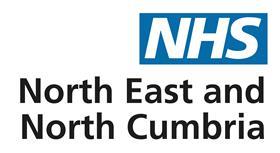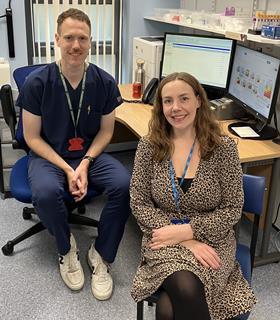This advertorial has been co-written and co-developed as part of the SPOT CKD collaborative working project between Boehringer Ingelheim, Hampshire and Isle of Wight Integrated Care Board, Health Innovation North East and North Cumbria, and the North East and North Cumbria ICB. The article has been funded by Boehringer Ingelheim.
Chronic kidney disease (CKD) is one of the UK’s most pressing health challenges, affecting more than 7 million people.[1] Its asymptomatic nature often leads to late diagnoses, missing vital opportunities for early intervention.
CKD disproportionately impacts communities experiencing health inequalities due to socioeconomic factors and limited access to care. Addressing this requires a systemic shift: prioritising prevention, empowering communities, and embedding equity into everyday healthcare.
Sponsored and written by




Driving change through partnership
To drive this shift, Boehringer Ingelheim partnered with the North East and North Cumbria Integrated Care Board (NENC ICB), Health Innovation North East and North Cumbria (HI NENC), and the Hampshire and Isle of Wight Integrated Care System (HIOW ICS) to launch the SPOT CKD programme – Screening, Prevention, Outreach and Treatment of Chronic Kidney Disease for Health Equity.
This initiative supports individuals at higher risk of CKD, particularly in communities where accessing care is more challenging. It aims to create an optimal patient pathway by:
- Educating patients with accessible kidney health education;
- Raising awareness among at-risk populations;
- Improving opportunities for early detection and management;
- Enhancing NHS staff skills and confidence in managing CKD; and
- Empowering patients to manage their health beyond hospital settings.
By focusing on earlier detection and community engagement, the programme promotes sustainable, equitable CKD care.
Local impact, national potential
In North East and North Cumbria, where CKD prevalence is 5.17 per cent* – above the national average of 4.45 per cent* – closing diagnostic gaps and ensuring equitable access is critical.[2] Through a partnership between HI NENC and NENC ICB, the programme uses locally developed technology to identify people at higher risk and encourage attendance for blood and urine testing.[3] By embedding screening in community settings and enabling people to better understand and manage their health, the region is building a more sustainable, prevention‑focused model of care.

Julia Newton, medical director for HI NENC, notes: “The SPOT CKD initiative is helping shift our approach from treatment to prevention, moving from managing late-stage kidney disease to preventing its onset at earlier stages. By working in partnership with Boehringer Ingelheim, we’re equipping healthcare teams with the tools and knowledge to identify those most at risk, provide timely treatment, and prevent complications.”
In Hampshire and Isle of Wight, CKD is a growing concern, particularly in Southampton and Portsmouth. More than 58,000 people have been diagnosed, yet more monitoring and support are needed.[1] Deprivation, language, transport and digital obstacles can present barriers to care. HIOW ICS leverages this initiative to ensure equitable access to evidence-based care, while enhancing NHS staff capabilities.

Kristin Veighey, National Institute for Health and Care Research academic clinical fellow in general practice, reflects: “As a GP registrar, I’m aware that many people are living with CKD who are not on our radar and are unaware they have the condition or what this means for them. Primary care has a key role to play in supporting early diagnosis and holistic management of kidney disease. The SPOT CKD programme aligns with the NHS 10-Year Plan’s ambitions by making early detection and support more accessible. It’s an example of what can be achieved when healthcare systems and industry work together. Through partnership, we’re building a proactive, collaborative healthcare system that delivers better long-term health outcomes for all.”
Shaping the future of CKD care
SPOT CKD is more than a regional initiative; it marks the start of a long-term journey to improve CKD identification and management across the NHS. By uniting healthcare systems, industry, and communities, it showcases the strength of collaboration in designing solutions that prioritise prevention and equity.
Boehringer Ingelheim is committed to advancing health equity and driving innovation in CKD care. The principles behind this initiative – early diagnosis, equitable access and community-led care – offer a blueprint that can be adapted to other chronic conditions, amplifying its impact across the health system.
We invite industry stakeholders, healthcare leaders, and community organisations to join us on this journey. By working together, we can build a fairer, more sustainable healthcare future where no one is left behind in the fight against CKD.
NP-GB-106553.
Date of preparation: November 2025
Reference
[1] Kidney disease: A UK public health emergency. The health economics of kidney disease to 2033. Executive summary. Available at: Economics-of-Kidney-Disease-summary-report_accessible.pdf
[2] CVD Prevent. March 2023. Available at: https://www.cvdprevent.nhs.uk
[3] Clinical Digital Resource Collaborative. (2024). Available at: https://cdrc.nhs.uk/
* North East and North Cumbria ICB CKD 3a-5 prevalence rate from CVD Prevent - accessed on 3.11.2025. Available at: https://www.cvdprevent.nhs.uk/


























